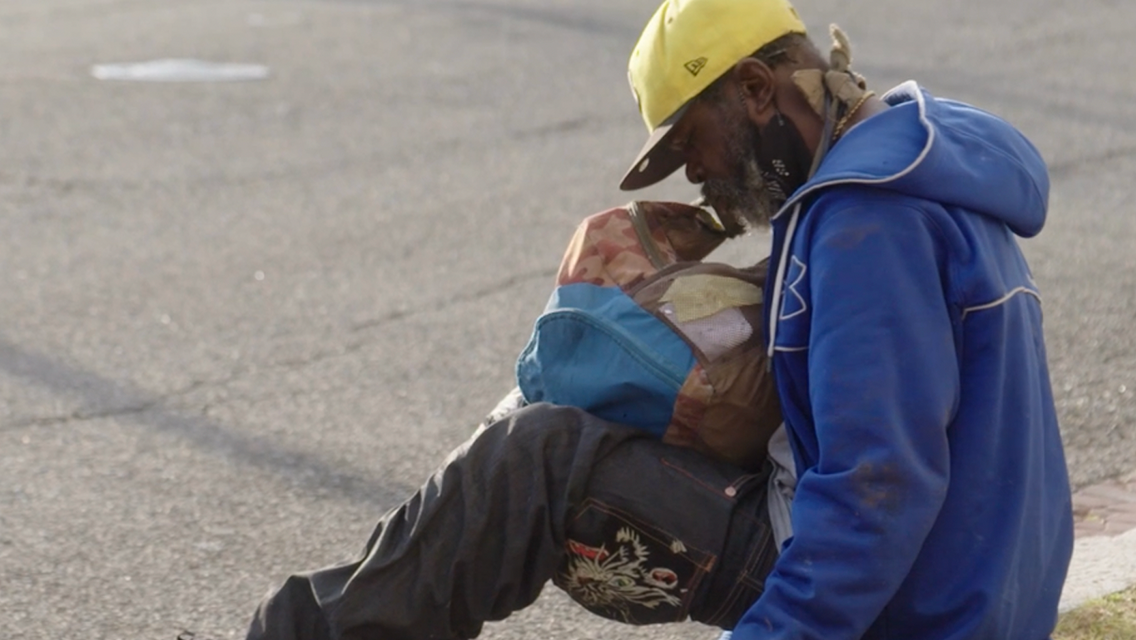A SHARED CALLING
EPISODE ONE
AND SO IT BEGINS…
When Mark Bergel and Katherin Phillips made a commitment to eradicating poverty in America, they embarked on a journey that continues to this day.
“I didn’t make a commitment until I was bringing food to people and I started to see how people were really living.”
How do .ORGs begin? A flash of inspiration and—poof!—you’re changing the world for the better? Anyone who has created a successful .ORG knows it takes a lot more time and effort than that. In fact, the .ORG community is full of the most dedicated and hardworking people out there. None more so than Drs. Mark Bergel and Katherin Phillips, Co-Founders of the Shared Humanity Project .
This is the first of our Change Maker Check-Ins that will shed light on Mark and Katherin’s journey to end poverty, as well as their progress toward their goal of creating a more equitable society. We hope Shared Humanity Project’s story will encourage anyone with a vision and the dedication to build their own .ORG. The knowledge, experience, and real-time learnings these Change Makers will share may just spark an idea in YOU to make a difference.
What does it take to start a .ORG?
According to Mark, the key word is “commitment.”
“Be sure you’re ready, and recognize that if you make that commitment, it’s a beautiful thing. The courage is the commitment,” Mark says. “There are so many nonprofit organizations focused on poverty, we [in the U.S.] should have this thing solved. Never mind the think tanks writing about it, or the professors teaching about it! I think we don’t because the commitment isn’t quite there.”
For Katherin, “connection” drives commitment; seeing yourself in others despite differing circumstances.
“We are at a window of opportunity right now where people can understand each other and they’re working to make connections. And, I think if we can make the correct connections, and we can build a community, that we can really change lives for everybody,” she says.
The “Aha” Moment
Mark was leading A Wider Circle, an organization he founded to address poverty in the Washington, DC area, when he had an epiphany so powerful, he pulled his car over to the side of the road. While he had considered creating a national plan to end poverty for more than a decade, the pandemic had brought new clarity. The time was now.
“I had started to look at a national plan, at what it would take to end poverty. When COVID hit, I realized my interest in looking at what is possible for human beings. I wanted to incorporate that more into my work,” says Mark. “People living in poverty have been my teachers, and the more I learned firsthand, the more I realized I wasn’t going to accomplish my goal unless I went national.”
The seed of Katherin’s poverty work was planted in the 1980s, when she was an undergraduate at Johns Hopkins University. As part of the Johns Hopkins Tutorial Project, which pairs students with children from West Baltimore, Katherin met Torrion.
“She was an incredibly bright girl who had a really difficult home circumstance and was not doing well in school. Meeting Torrion really opened my eyes to what people were facing just a few miles away from my school. She absolutely changed my life,” Katherin says. “Torrion wanted be a fashion designer. We used fashion to help improve her reading and math skills,” Katherin remembers.
Perfect Partners
When Mark mentioned he was looking for an economist to ground the plan in data and help scale his ideas, Katherin, who worked with him at A Wider Circle, jumped in.
Katherin asked: “Can I be your economist? Mark answered, ‘I don’t know, can you?’”
“I didn’t even know she was one,” says Mark. “But I had never worked with a person more thoughtful and compassionate than Katherin. She is an economist who also is interested, like I am, in what is possible for the human species. It was natural for us to work together.”
An Essential Question
Now officially co-founders, Mark and Katherin set out to define SHP’s mission. To do so would mean redefining “poverty” itself.
“The poverty line we use in this country reflects a lack of real concern. There are very few places in the United States where a family of four could get by without assistance on $26,500. If we don’t define and measure poverty correctly, we don’t count it correctly, and we don’t address it correctly,” Mark explains. “Cost of living varies tremendously across the country. We looked at a lot of ways to measure poverty and came up with 50 percent of local median income. We call it the National Poverty Plan Standard, and we have local standards for every county in the United States.”
Preparing for Success
Armed with clarity of mission, Mark and Katherin put in place the building blocks needed to support a successful .ORG, which included choosing an official name, drafting by-laws, filing for 501(c)3 status, and of course, registering their website as a .ORG. Many .ORGs find themselves in a position of balancing the day-to-day tasks of starting up with the reality of limited resources. Mark says they are meeting the challenge by giving proper attention to the small details involved in building their .ORG.
“You’re faced with everything from the articles and by-laws, to name and logo, to filing for 501(c)3 status, and registering with the state. Some are issues you don’t have as much control over. I tell people to make a list and just knock off one each day. And if one takes a little while because the form is complicated, or you hear back that everything isn’t correct? Just work with that. I would strongly recommend not cutting any corners,” Mark says.
Making it Office Official?
As .ORGs build, many look for a space to house their work. Conference rooms in which to convene boards of directors, and offices or cubicles for fundraisers and volunteers offering on-site organizational support. Is this the model Shared Humanity Project will use? Maybe … and maybe not, says Mark.
“I don’t think that having a traditional office is as important as it was. It’s nice to have conference rooms from time to time. It’s nice to gather with one another. But it depends on the nature of your operation. If you’re a daily service provider, you need to have a space. If you’re not, if you’re working on things at a different level, whether it be philosophical or policy-based, I think you can do that from anywhere.”
START YOUR JOURNEY
Want to know the first steps toward starting your own .ORG? Visit our .ORG Learning Center for useful tools and info that will get you started out on the right foot! Check out some of our great resources below:
GET ADVICE FROM LEADERS
What’s it like to start up and roll out your own .ORG? Check out our Mentor Moments to hear about their experiences, what they’ve learned along the way, and how their journey can help yours.
VIEW THE COMPLETE SERIES
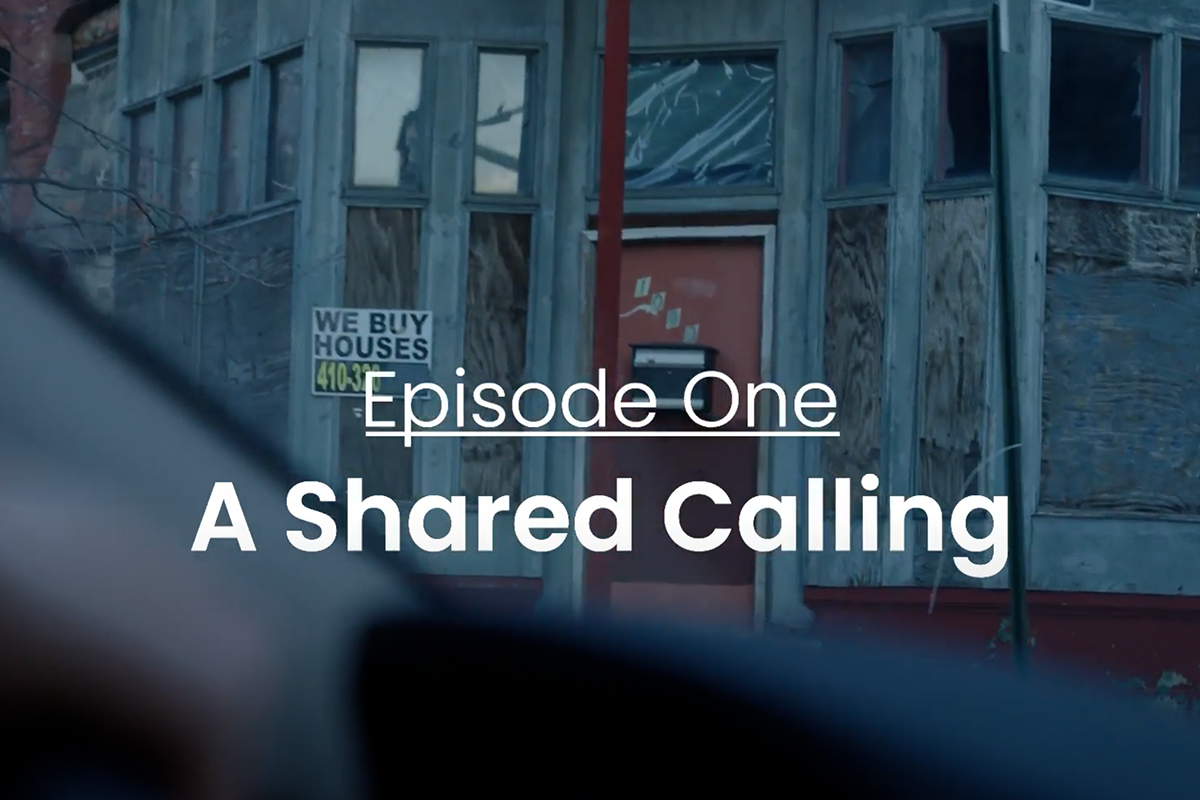
I: A SHARED CALLING
Introducing Mark Bergel and Katherin Phillips, two individuals who came together to create a unique data-driven approach to combat poverty in America. Discover how they turned their vision into reality.
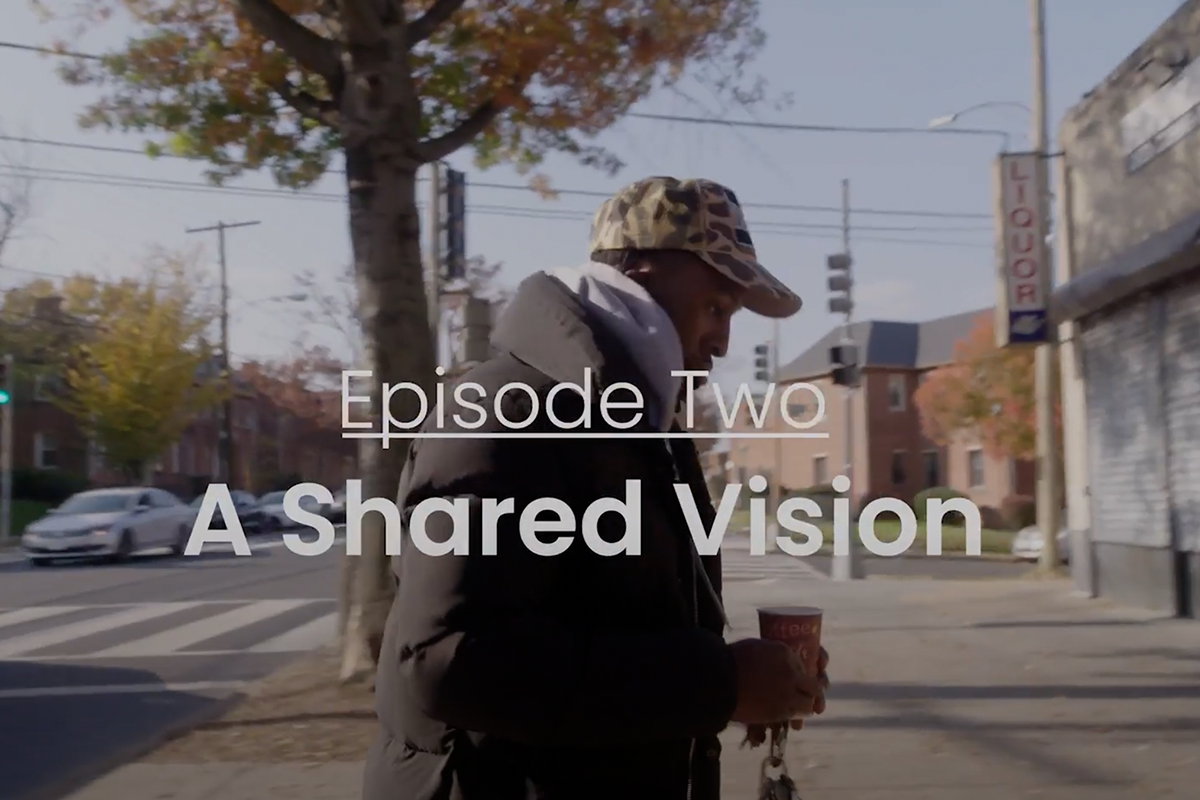
II: A SHARED VISION
Find out how Mark and Katherin have worked to create and cultivate relationships with leaders in marginalized communities as they continue to expand the reach and impact of their new .ORG.
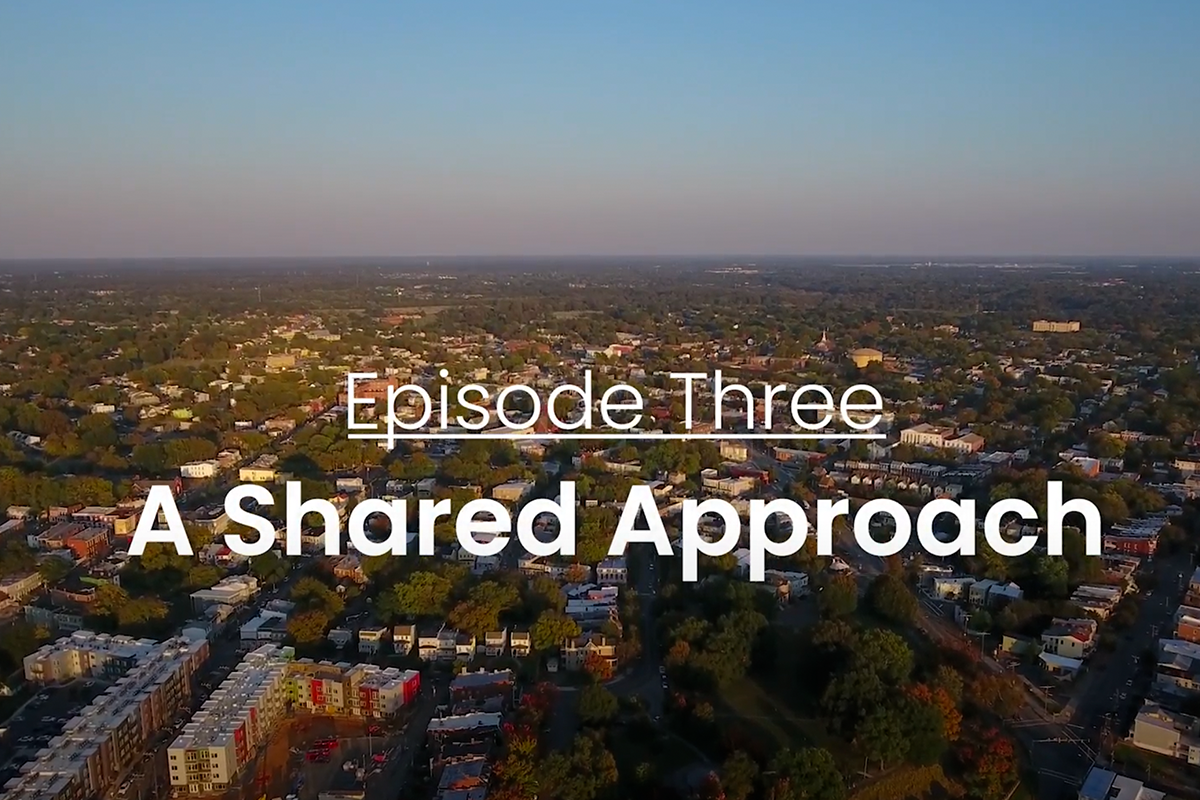
III: A SHARED APPROACH
Poverty isn’t just an inner city problem – it’s everywhere. Take a deeper look at how Mark and Katherin are building a community of people who work together to fight for economic stability.
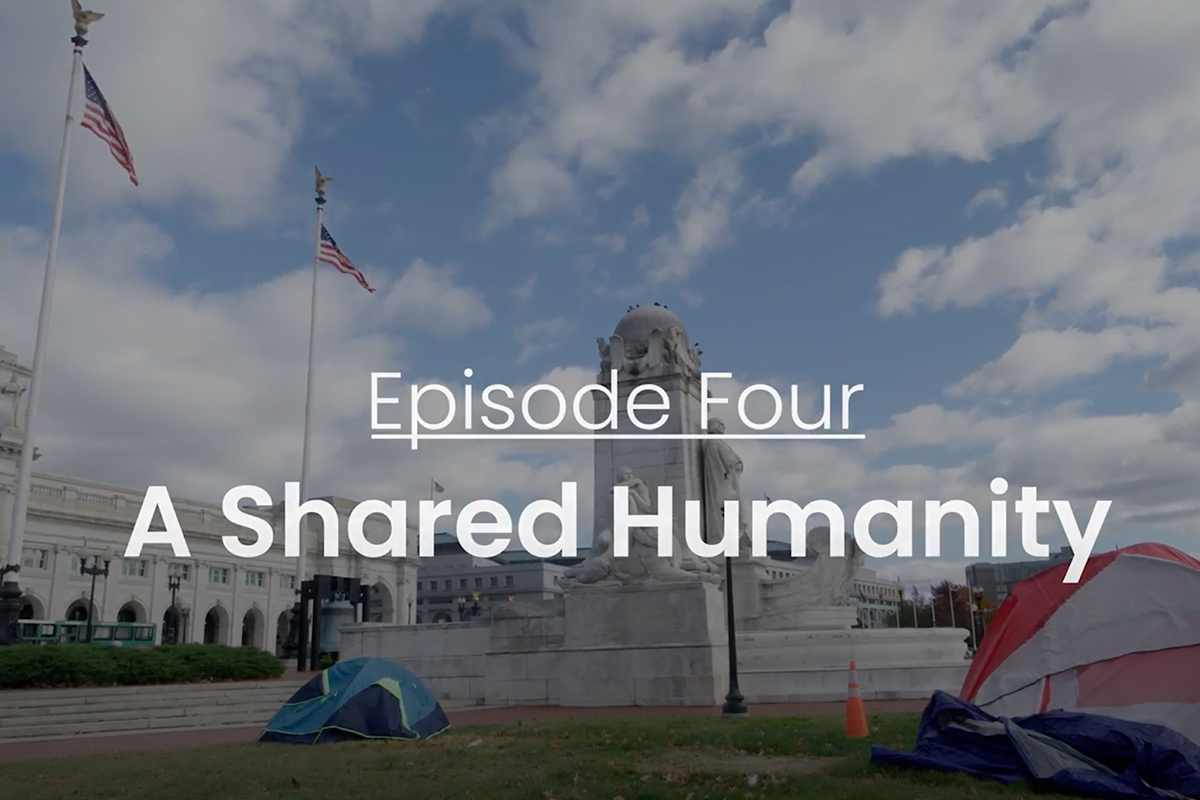
IV: A SHARED HUMANITY
Discover the Shared Humanity Project’s National Plan to End Poverty, which redefines what poverty means, offers steps we can take to end it, and supports leaders to affect positive change.

